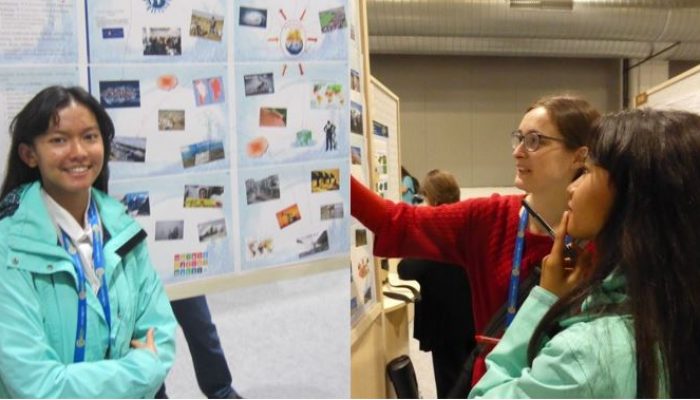
Today we welcome probably one of the youngest participants who attended the 2018 General Assembly, Pariphat Promduangsri, a 16-year-old science baccalaureate student at Auguste Renoir high school in Cagnes-sur-mer, France, as our guest blogger. With a deep interest in the natural world and in taking care of the environment, Pariphat was a keen participant at the conference. She gave both oral and poster presentations in sessions on Geoscience Games and on Geoethics. She enjoyed particularly the sessions on education and geoscience.
The 2018 EGU conference in April was my first time attending the General Assembly; it was the biggest gathering that I have ever been to, and I think that I was most likely one of the youngest participants ever at the EGU General Assembly. Last year, my sister, Pimnutcha, went to the 2017 General Assembly with our stepfather, David Crookall. When she got home, she told me how exciting and interesting the conference was. She also wrote a blog post for GeoLog about her experience.
This year, it was my chance to attend this conference. However, the dates were still in the school term time, so I asked my high school teachers and director if they would let me be absent from school. They agreed, and told me that it would be a great opportunity to learn many things.
My stepfather and I arrived in Vienna on the Saturday before the conference; it was not as cold as I thought it would be. On Sunday, we went to a pre-conference workshop titled ‘Communicating your research to teachers, schools and the public – interactively’ organized by Eileen van der Flier-Keller and Chris King. It was very interesting. They helped us to think more clearly about aspects of teaching geoscience and how pupils can learn more effectively.
So began an enriching and wonderful week. We attended many oral and poster sessions.
During the conference, I had the opportunity to participate in two different sessions, giving two presentations in each – one oral and three poster presentations in all.
The first session that I attended was Games for geoscience (EOS17), convened by Christopher Skinner, Sam Illingworth and Rolf Hut. Here I did one oral presentation and one ready-to-play poster. This session was the very first one on the topic of geoscience games at the General Assembly, and I was lucky to be part of this momentous event. Our oral presentation was called ‘Learning from geoscience games through debriefing’. I did the introduction and some passages in the middle, with the rest done by David. The main idea of our presentation was to emphasize how we may learn more effectively from games by debriefing properly; it is during the debriefing that the real learning starts. As David says, “the learning starts when the game stops”.
For our poster, ‘Global warming causes and consequences: A poster game+debriefing,’ people were invited to play our GWCC game. We asked people to participate by drawing lines linking global warming to its causes and effects. I had a great time talking with some dozen people who came to visit and play.
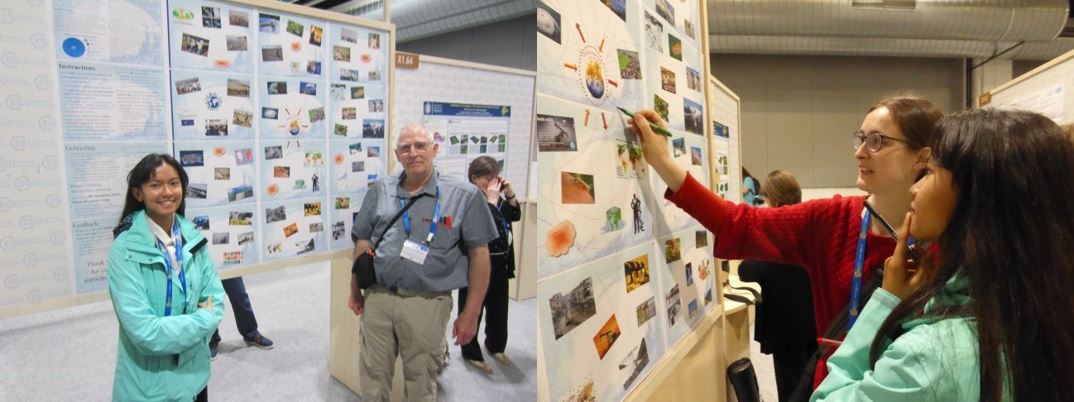
Left: David and I in front of the poster. Right: Explaining to Marie Piazza how to play the GWCC game. (Credit: Pariphat and David Crookall)
The Geoscience Games Night was organized by the conveners of Games for Geoscience. Many people brought games of all kinds to share and play, and even more people came to play. The atmosphere was one of enjoyment, socializing and learning. I played a game about the water cycle, based on the well-known board game Snakes and Ladders. It was an exciting time. At the end of the session, Sam Illingworth came to tell me that earlier in the day I did a great job for the oral presentation. I felt really happy about his compliment.
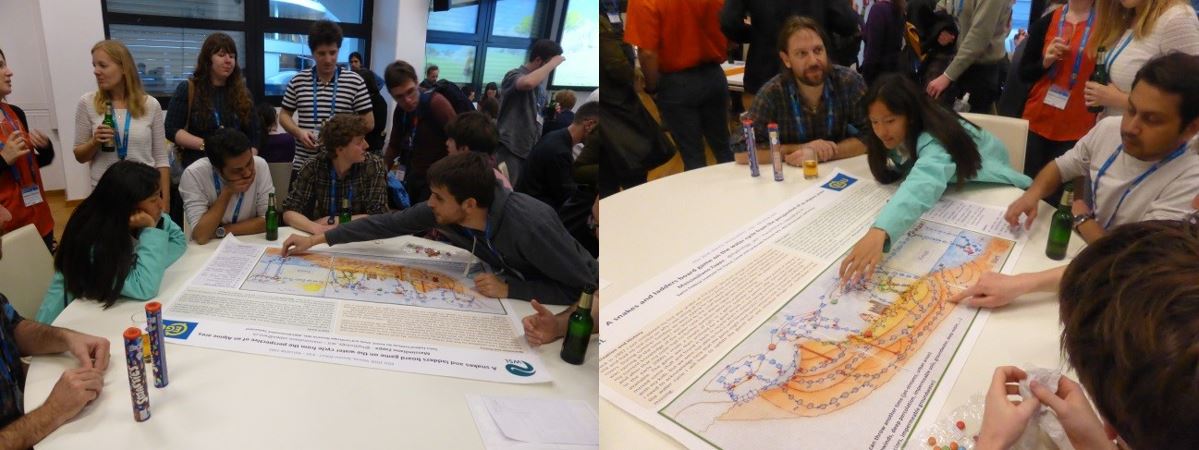
Pictures of me playing games in the Geoscience Games Night session. (Credit: Pariphat and David Crookall)
The second session was titled Geoethics: Ethical, social and cultural implications of geoscience knowledge, education, communication, research and practice (EOS4), convened by Silvia Peppoloni, Nic Bilham, Giuseppe Di Capua, Martin Bohle, and Eduardo Marone. In this session, we presented two interactive posters. One was called ‘Learning geoethics: A ready-to-play poster’. This was a game where people are invited to work together in a small group. The game is in five steps:
- Individuals are given a hand of 12 cards each representing an environmental value. Here are four examples of values cards:
- Water (including waterways, seas) should have similar rights as humans, implying protection by law.
- Water quality must be protected and guaranteed by all people living in the same watershed. Water polluters should be punished.
- All people with community responsibility (politicians, mayors, directors, managers, etc) must pass tests for basic geosciences (esp climate science) and geoethics.
- Families and schools have an ethical and legal obligation to promote respect for others, for the environment, for health, for well-being and for equitable prosperity.
- Individually, they then select six of the 12 cards based on importance, urgency, etc.;
- Then, in small groups of three participants, they discuss their individually-selected choices from step 2. Collectively, they achieve consensus and choose only six cards for the group;
- The group then continues to reach a consensus in a rank ordering of the six cards;
- Debriefing about (a) the values and (b) the group process using consensus.
The second poster was titled ‘Geo-edu-ethics: Learning ethics for the Earth’. In this interactive poster, we asked participants to contribute their ideas for geoethics in education, or as we call it, geo-edu-ethics. We received excellent feedback from viewers and contributors to this poster.
We must make geoethics a central part of education because it is crucial for future generations. Indeed our Geo-edu-ethics poster stated, “we need people to learn, and grow up learning, about what is right and wrong in regard to each aspect of our personal earth citizen lives. That needs nothing short of a recast in educational practice for all educational communities (schools, universities, ministries, NGOs) across the globe. It is doable, but it is urgent”.
Also, we must all realize that “education is inconceivable without ethics. Geo-education is impossible without geoethics… Geo-conferences (including the EGU) include ever greater numbers of sessions related to experiential learning. Experiential learning is at the heart of much in the geo-sciences. An already large number of simulation/games exist on a wide variety of topics in geoethics,” (extract from Learning Geoethics poster).
This explains why a conference like the General Assembly is so important. We can learn from the enriching experience provided by the conference itself, and also learn about opportunities for experiences in the field.
During the week, I went to many different sessions; I met many new people, all of whom who were friendly and down-to-earth (so to speak!). It was a pleasure to be part of the General Assembly and it is also a good opening to the professional world. The EGU allowed me to discover many great things about several fields in the geosciences and about the Earth. It was indeed an exciting time!
I would like to thank Silvia Peppoloni, Giuseppe Di Capua and their fellow co-conveners from the International Association for Promoting Geoethics and the Geological Society of London; I admire the work that they are doing. I enjoyed the evening meal with everybody at the Augustinerkeller Bitzinger in the beautiful city night of Vienna. I also wish to thank Christopher Skinner, Rolf Hut and Sam Illingworth, co-conveners of the Games for Geoscience session. They gave a wonderful opportunity to be part of their sessions and to learn more.
I also thank my high school teachers for letting me be learn outside school and in a professional setting.
I hope to see more pupils at the EGU! Please join me on LinkedIn.
by Pariphat Promduangsri
Pariphat Promduangsri is a 16-year-old science baccalaureate student at Auguste Renoir high school in Cagnes-sur-mer, France. Her native country is Thailand. She has lived in France for over four years. She speaks English, French, Italian and Thai. When she is not studying or climbing mountains (she has already done most of the Tour du Mont Blanc), she likes playing the piano. Later she will probably persue a career taking care of the environment and the Earth.

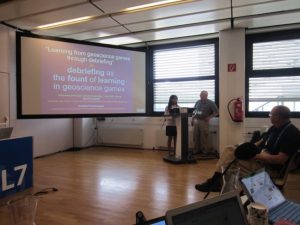
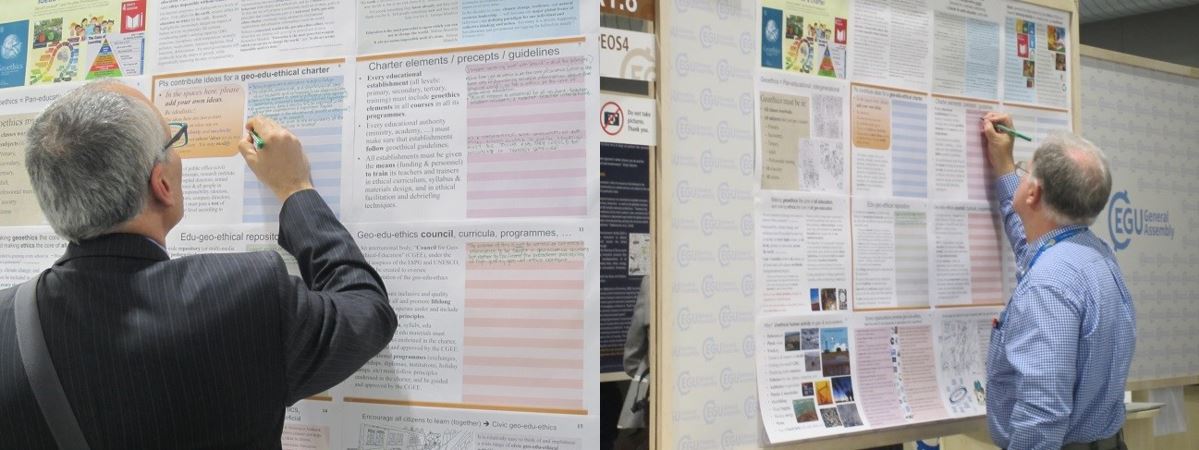
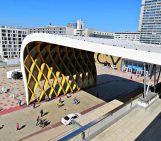
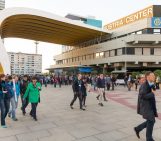
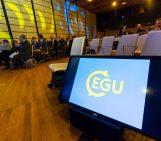
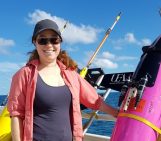
Christophe Le Page
Hi Ploy,
I really enjoyed reading your report!
All the best for your incoming academic/scientific carreer!
Amicalement,
Christophe
Pariphat
Dear Christophe,
Thank you so much for your kind words. I really appreciate it. Yes, I am sure that it will help me a lot in my career. I have warm memories of the ABMS course that you taught. Sorry that I will miss you in Vienna.
Amicalement,
Pariphat
Pierre
Congratulations Ploy for your participation to EGU and for this blog!
Your scientific adventure continues and I hope it will take you far.
A bientôt !!
Pariphat
Hello Pierre,
I really appreciate your kind words. Yes, I really enjoyed doing the blog entry – just the start of my adventure! I have fond memories of the ABMS course that you taught. I hope that you will come to the EGU in April.
Bises,
Pariphat
Sonia
What a great experience for this young participant! Hopefully, more students will pursue research in the earth sciences.
Pariphat
Thank you, Sonia, for your encouraging words. Yes, if it can encourage more young people, to an earth science path, that would be great. Will you be at the EGU in April? If so, it would be great to meet. (You can find me via my LinkedIn profile.)
Best wishes,
Pariphat